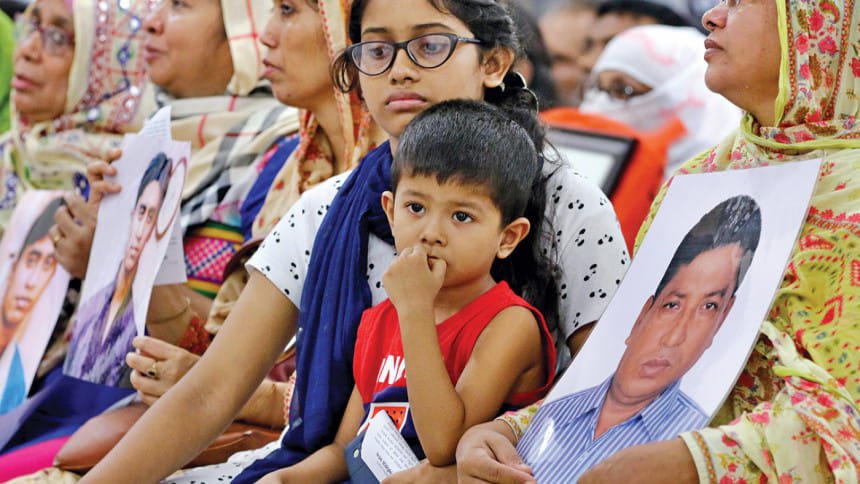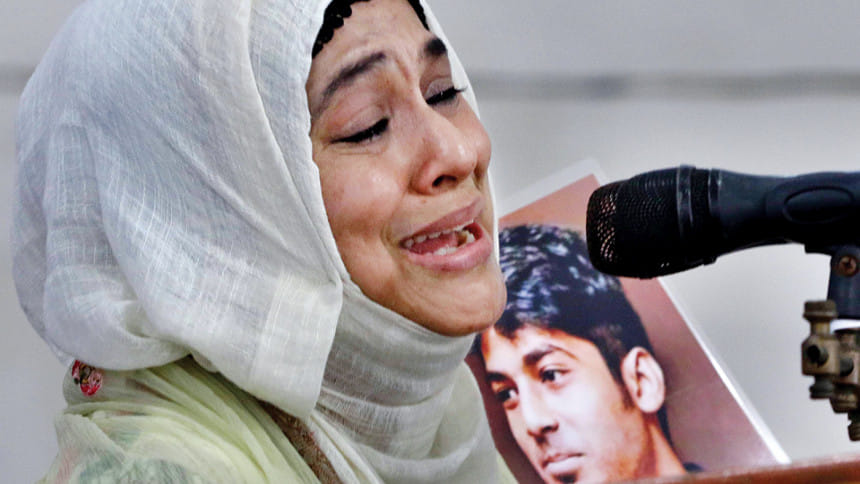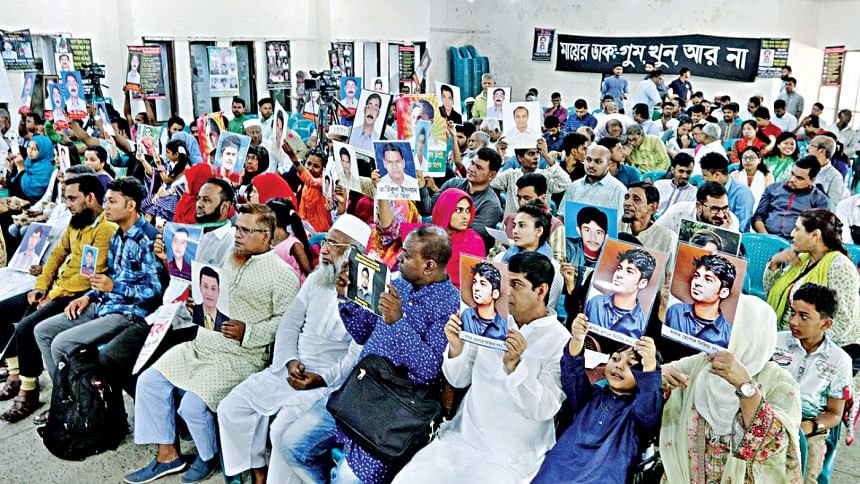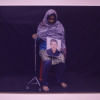‘I couldn’t find him anywhere’

Ever since her son went missing four years ago, Shahida Begum, 65, has knocked at every possible door -- local police, Rab, political leaders.
And every time, she returned home dejected as no one could help her find her son, Sazzad Hossain Sabuj, a Swechchhasebak League leader from Kushtia. But she still waits.
Sazzad, 44, along with two others, was detained by law enforcers from a resort in Gazipur on August 21, 2015, and has never returned home, Shahida said at a discussion in the capital yesterday, marking the International Day of the Victims of Enforced Disappearances.
“I cannot answer when Sazzad’s little daughter ask me when her father will return…I don’t know how long we will have to wait for him,” she added.

Like her, about 70 family members of enforced disappearance victims came from different parts of the country to join the programme at the Jatiya Press Club. A number of them were themselves victims of enforced disappearance, but later returned home, organisers said.
“Mayer Daak” (Mother’s Call), a platform of family members who lost their loved ones since 2012 to enforced disappearance, arranged the discussion.
Many families allege law enforcers are behind their disappearance, but the government denies this.
According to Ain o Salish Kendra, at least 544 people have fallen victim to enforced disappearance from January 2010 to July 2018.
Speaking at the programme, Supreme Court lawyer Jyotirmoy Barua said those who are arrested in line with certain law have at least the chance to get some sort of legal assistance. But the victims whose detention is not acknowledged do not even have that opportunity.
Hasna Islam Raisa, daughter of BNP leader Sajedul Islam Sumon of Tejgaon, said she was in fourth grade when her father went missing in 2013.
“Six years on, there is no trace of my father. I couldn’t find him anywhere,” said a weeping Raisa, now a class-nine student.
Sumon’s sister Marufa Islam said their mother Hazera Begum had been attending similar programmes over the last few years. Now old and sick, she could not come this year.
“Her only wish is to see her son come home safely,” she added.

Shakil, the younger brother of Chhatra Dal leader Mahbub Hasan Sujan of Basabo, said some people identifying themselves as law enforcers picked up Sujan from their neighbourhood on December 7, 2013.
Mahbub was among several dissent voices who were picked up ahead of the parliamentary election of 2014. They never came back home, Shakil said.
“If someone is guilty, they should be tried in line with the law,” he added.
Speaking at the discussion, Prof Asif Nazrul of Dhaka University said enforced disappearance was a heinous crime and that demand for justice for the victims should get louder.
The civil society has to play its due role here, said Prof Asif, who teaches law.
Nagorik Oikya Convener Mahmudur Rahman Manna said people must protest against such crimes whenever possible.
Alleging that the government was formed through widespread vote rigging, Manna said those in power have become deaf and their hearts are made of iron.
“They cannot feel the cries of the family members of enforced disappearance victims,” Manna said, demanding formation of an independent commission to deal with the matter.
In some cases, there are evidence that fathers handed over their sons to either Rab or police after being assured that they will return safely. But the state agencies have a tendency to cover up those incidents, said rights activist Nur Khan.
Rights activist Nasiruddin Alan and Gonoshasthaya Kendra Founder Zafrullah Chowdhury, among others, spoke at the programme.

 For all latest news, follow The Daily Star's Google News channel.
For all latest news, follow The Daily Star's Google News channel. 








Comments